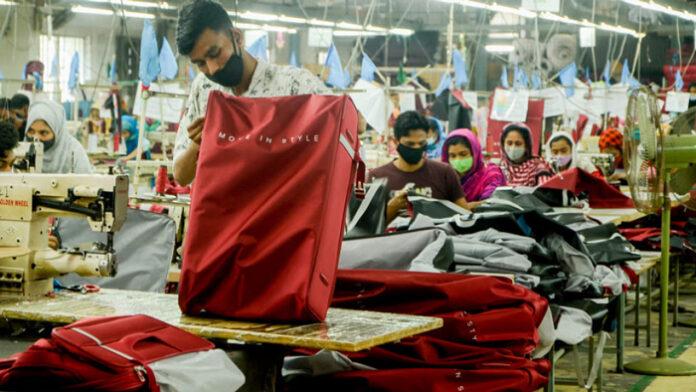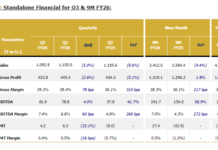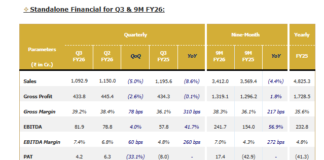EPZs will get Tk 12,800 as minimum wage from the current month, which is 56% higher than the Tk 8,200 set five years ago.
The Bangladesh government has declared a new minimum wage for over 4.8 lakh workers in Export Processing Zones (EPZs), a development that comes nearly two weeks after it finalized a new pay structure for workers in the garments sector, the largest export-oriented industry in the country.
Helpers in garment factories inside EPZs will get Tk 12,800 as minimum wage from the current month, which is 56 percent higher than the Tk 8,200 set five years ago, according to a notification on 10 December 2013 published by the Bangladesh Export Processing Zones Authority (Bepza).
The amount is 2.4 percent, or Tk 300, higher than the Tk 12,500 minimum wage set for garment workers in factories outside EPZs, finalized on November 26 following protests.
“The new minimum wage has been determined based on a consensus between owners’ and workers’ representatives,” said Abu Syeed Md Anwar Parvez, executive director (public relation) of Bepza.
He added that the minimum wage was not yet finalized and that if anyone had any objection or recommendation then they can place it to the board in writing within 14 days. Based on that, the new minimum wage will be finalized.
Bepza formed a board to fix the minimum wage of employees in EPZs last month, which came five years after the previous wage board was formed by the authority in 2018.
In its notification, Bepza said the board considered proposals from representatives of owners and workers in view of current issues such as volatile global trade, geopolitical tensions, reduced export orders and increased cost of raw materials as well as spiralling costs of essentials.
Parvez said the new minimum wage would be effective from December this year and workers in EPZs would get their salary as per the revised structure in January.
Two-thirds of workers in EPZs, which have 449 industrial units with a cumulative investment of $6.6 billion, are engaged in garments, according to the official.
As per the notification, senior operators in garment factories in EPZs will see their minimum wage go up by 52 percent to Tk 15,200. However, high-skilled workers will see their wages rise by 20 percent.
Bepza also published the lowest wage for workers in sectors apart from garments, namely electronics and electrical goods, automobile and auto parts, textiles and chemicals, agro-based industries as well as terry towel and sweater factories.
For example, a junior operator in the sector of electronics and electrical goods, automobile and auto parts, bicycle and cosmetics will get Tk 14,025 as minimum wage as per the latest decision. The amount will be 50 percent higher than the Tk 9,325 lowest wage fixed five years ago.
In the case of unskilled workers in textile, chemical or agro-based industries, the new minimum wage is Tk 13,250, up 53 percent from earlier, according to the Bepza notification.
Factories in the EPZs represent 30 sectors, including textiles, agro-based industries, chemicals, backward and forward linkage industries and electrical equipment and components.
Exports from factories in EPZs accounted for 11 percent of total receipts, standing at $43.5 billion in the fiscal year 2022-23, according to data by the Bangladesh Bank.












